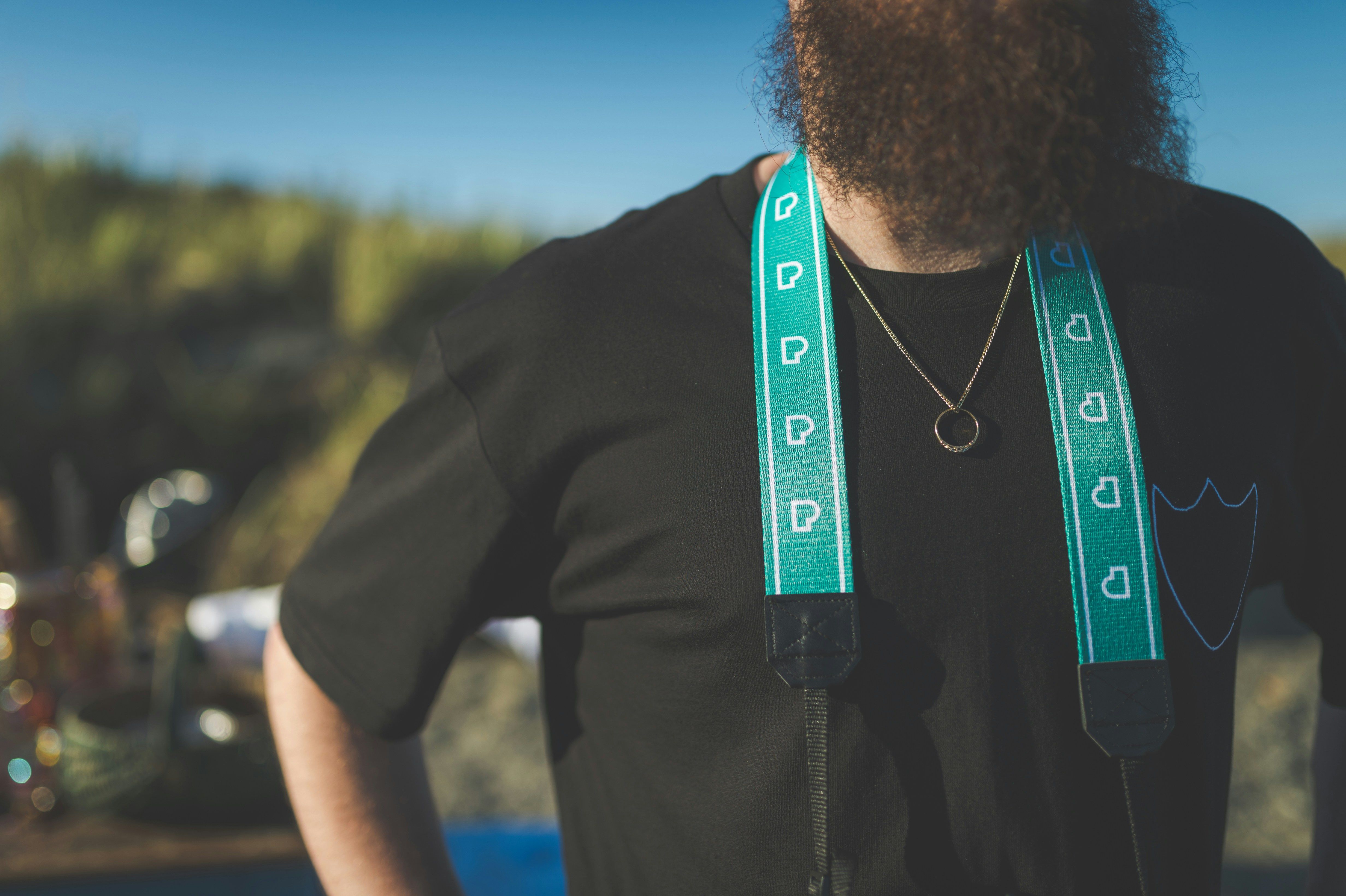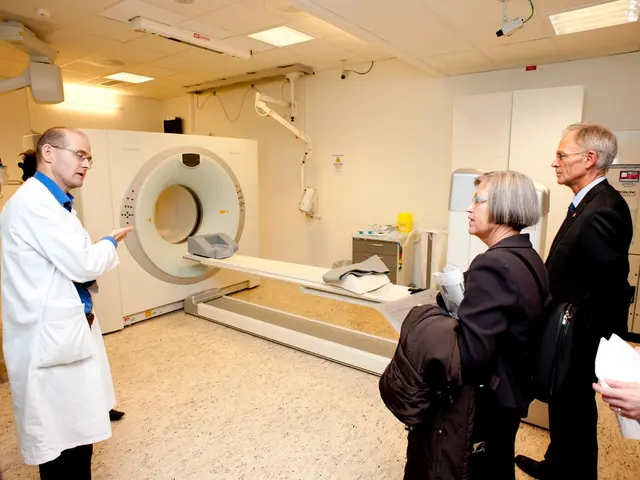European Deposit Refund Scheme in Romania: A Grey Area of Excellence in Sustainable Practices, Contributing to the Union's Sustainable Future Discussions. RetuRO Continues the Conversation.
Shedding Light on Romania's Sustainability Strides: The Astonishing Success of RetuRO's Deposit Return System
Romania is making waves in the European sustainability scene, thanks to RetuRO's innovative Deposit Return System (DRS). As the driving force behind Romania's largest circular economy project, RetuRO has been turning heads at Europe's leading environmental events, like the Packaging Waste & Sustainability Forum.
At this year's conference, Gemma Webb, the visionary CEO and Chair of RetuRO's Board of Directors, shared the system's impressive first-year performance and ambitious plans for 2025. The event brought together industry leaders, policymakers, and international experts to discuss critical topics like legislative frameworks, production processes, materials used, and waste management – all discussed through the lens of a circular economy.
In her inspiring speech, Gemma Webb showcased how Romania managed to build an efficient and collaborative system from the ground up, making it a model for European talks on the circular economy.
RetuRO's participation in the conference strengthened Romania's position in the map of Europe's eco-friendly initiatives. "For RetuRO, attending such an event is recognition of the hard work put in during our first year of operation," Gemma Webb noted. "It confirms that Romania is on the right track in transitioning to a circular economy, and that we, as member states, have much to learn from each other in our attempts to create functional and harmonious systems."
From Zero to Hero in Just One Year
In just one year, RetuRO has reported spectacular results: nearly 3.5 billion collected packaging units, 93% of which have already been sent for recycling, and an average collection rate exceeding 80% over the past seven months.
"The system is working remarkably well," Gemma Webb said at the forum. "We became operational after just one year of preparation, starting from scratch – with no infrastructure, equipment, or initial resources – like a true startup. It was undoubtedly a challenge. But once the system took shape and stabilized, we reached the point where we consistently collect over 80% of the packaging placed on the market across all three material categories – plastic, metal, and glass. The effects were immediate: streets, rivers, and green spaces became cleaner, which is one of the system's greatest successes."
Navigating Complexity and Overcoming Obstacles in a Diverse Landscape
Implementing the Deposit Return System in a diverse economic and social landscape wasn't without its hurdles. Romania needed to construct a national logistics infrastructure from the ground up, educate millions of citizens, and mobilize tens of thousands of retailers and producers. Obstacles initially included a lack of recycling culture, resistance among small retailers, muddled differences between DRS and non-DRS containers, and issues adapting logistics within an expanding system.
"One of the defining aspects of Romania's Deposit Return System is its intricate nature," Gemma Webb highlighted at the conference. "We are talking about approximately 80,000 retailers, 4,000 producers and importers, and a population of 19 million people. However, a key element that facilitated implementation was a well-defined legislative framework. All retailers are required to be part of the system, ensuring a solid foundation for the uniform functioning of the entire ecosystem."
A Beacon of Best Practices in Europe
The new European packaging legislation, known as the Packaging and Packaging Waste Regulation (PPWR), sets ambitious targets: single-use plastic beverage bottles must contain at least 30% recycled material by 2030, and all packaging must be widely recyclable by 2035. In this context, Romania has seized the momentum and begun the transition to a circular economy, serving as a model for other states due to its challenges overcome and the lessons learned.
"If we examine Romania as a case study, it's clear that the Deposit Return System has a significant impact on recycling rates," Gemma Webb explained at the event. "In 2022, the overall recycling rate in Romania was around 13%, and for packaging, just under 40%. After only one year of implementing the system, these figures have skyrocketed, reaching over 80%. So, the system is working. Yet, we're still in a process of learning and optimization."
Cultivating a Recycling Mindset in Daily Life
According to surveys commissioned by RetuRO, 98% of Romanians are already aware of the Deposit Return System, and 9 out of 10 have used it at least once. Moreover, 87% of citizens believe the system directly aids in the reduction of abandoned packaging in nature.
Now, one year after the launch of the Deposit Return System, Romania has demonstrated that profound change in waste management is possible, even in an initially difficult context. RetuRO remains at the forefront of this transformation, serving not only as the system's administrator but also as an active advocate for the circular economy.
"Attending this forum isn't just an opportunity to share what we've achieved in Romania, but also recognition that our Deposit Return System implementation model is relevant at the European level," Gemma Webb, CEO and Chair of the RetuRO Board of Directors, stated. "It's an opportunity to actively participate in the dialogue on the sustainable future of packaging in the EU."
2025 marks new goals for RetuRO. Two new regional counting and sorting centres for DRS packaging are set to open in the coming months, while optimization efforts will focus on speeding up registration for small retailers and strengthening collection infrastructure in rural areas to improve access for all consumers.
This is partner content.
For Eyes Only:2025 Goals for RetuRO
RetuRO, the company driving Romania's largest circular economy project, has yet to express specific 2025 goals in the provided data. However, based on recent achievements and the broader context of Romania's sustainability endeavors, we can infer some objectives:
- Consistent High Collection Rates: RetuRO collected over 1.06 billion containers in the first three months of 2025, with a collection rate of 75% for all containers in March. Maintaining or increasing these rates is likely a top priority for 2025.
- Improved Recycling Infrastructure: While not a direct goal of RetuRO, Romania has promised to develop recycling infrastructure through the National Recovery and Resilience Program (PNRR). This includes building 26 new recycling plants with substantial funding, aiding RetuRO's purpose by guaranteeing that collected materials are effectively recycled.
- Sustainability Contributions: By focusing on high collection and recycling rates, RetuRO aims to reduce waste in landfills, aligning with Romania's objective of enhancing waste management. Furthermore, It supports Romania's commitment to achieving EU recycling targets through the Deposit Return System managed by RetuRO – a crucial factor in maintaining high recycling rates across different materials, including plastic, metal, and glass.
Saviors of the Environment: RetuRO's work in administering the DRS will significantly contribute to Romania's sustainability efforts by:
- Slashing Waste: High collection rates minimize the amount of beverage containers that end up in landfills, aligning with Romania's goals for improved waste management.
- Boosting Recycling Rates: Delivering massive quantities of collected containers to recyclers helps attain high recycling rates, as observed with metal and plastic materials.
- Fostering a Circular Economy: By maintaining an effective DRS and contributing to recycling infrastructure development, RetuRO empowers the creation of a more circular economy in Romania, which aligns with broader EU sustainability goals.
- RetuRO's success in Romania's circular economy project, highlighted by the Deposit Return System (DRS), has not only been limited to waste management but also extends to health-and-wellness, as cleaner streets result from the system's implementation.
- In the realm of science and environmental-science, RetuRO's DRS has proven effective in increasing recycling rates, with a significant impact on Romania's overall recycling rate, which was around 13% in 2022 but s Skyrocketed to over 80% after one year of system implementation.
- The progress made by RetuRO in Romania has also resonated in the lifestyle sector, as the awareness and usage of the DRS among citizens have grown significantly, with 98% of Romanians being aware of the system and 87% believing it aids in the reduction of abandoned packaging in nature.
- Compelling evidence suggests that RetuRO's DRS, combined with Romania's focused efforts in developing recycling infrastructure like the National Recovery and Resilience Program (PNRR), will contribute substantially to the goals of sustainable living and climate-change mitigation by reducing waste in landfills, boosting recycling rates, and fostering a more circular economy, thus serving as a model for other countries to follow.






